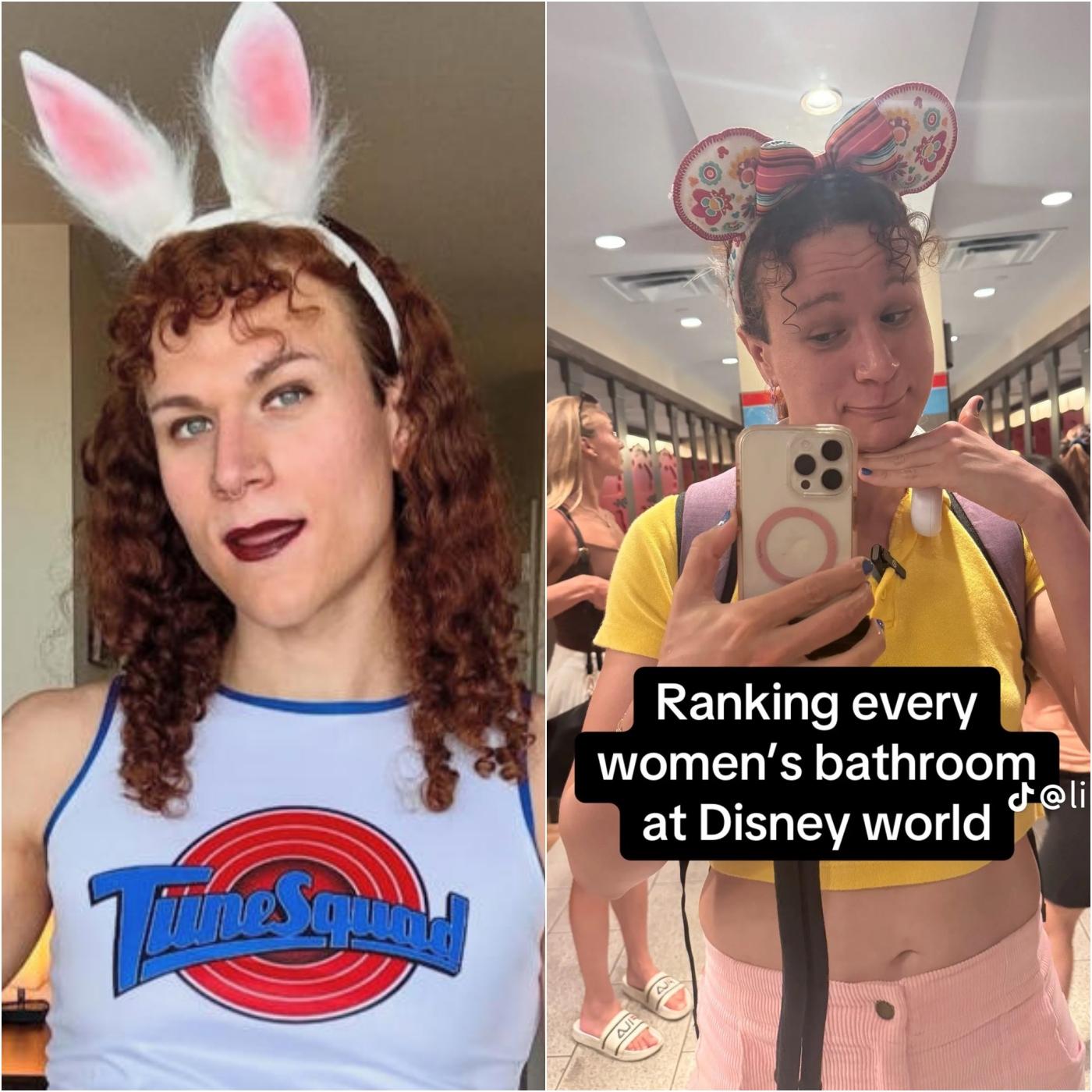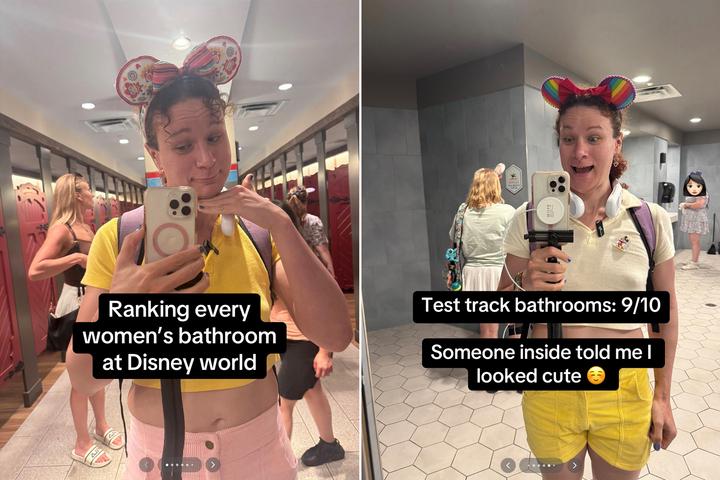A storm is brewing at Disney World, and it’s not the usual Florida rain. Transgender TikTok influencer Lilly Tino, known for her vibrant online presence, has sparked outrage after repeatedly entering women’s restrooms at the theme park to snap selfies, rate facilities, and share provocative content. With over 400,000 followers, Tino’s actions have ignited a firestorm of debate, drawing nearly half a million signatures on petitions calling for her removal from TikTok and a ban from Disney properties. The controversy has thrust issues of privacy, safety, and inclusivity into the spotlight, leaving social media buzzing and legal questions looming.

The saga began when Tino, whose real name is Nicholas Sylvan Contino, posted a series of TikTok videos and selfies from women’s restrooms at Disney World. In these posts, she offered commentary on the cleanliness and aesthetics of the facilities, often capturing other guests—women and children—in the background without their consent. One video, part of a series titled “Ranking Every Women’s Bathroom at Disney World,” included unblurred faces of unsuspecting park-goers, prompting accusations of privacy invasion. Critics argue that Tino’s actions violate Florida Statute 810.145, which prohibits recording in restrooms without consent, a felony that could carry up to five years in prison and a $5,000 fine. The stakes are high, and the backlash is fierce.
One woman, identified in the background of Tino’s photos, has publicly stated she is exploring legal action, citing emotional distress and violation of her privacy. A mother whose child appeared in one of the images has also come forward, reportedly considering a civil lawsuit. These developments have fueled public anger, with many arguing that Tino’s behavior undermines the family-friendly environment Disney strives to maintain. Social media platforms, particularly X, are ablaze with posts condemning Tino’s actions, with hashtags like #BanLillyTinoFromDisney gaining traction. A Change.org petition urging Disney to bar Tino from its parks has amassed over 29,000 signatures, while a separate petition demanding her removal from TikTok has surged past 470,000, reflecting widespread concern among families and park visitors.

Tino, a former game industry professional turned influencer, has defended her actions, framing the backlash as rooted in transphobia rather than legitimate privacy concerns. In a TikTok response, she compared her restroom selfies to those taken by celebrities, claiming that photographing in public bathrooms is a common practice among women. “Any woman you ever meet has likely taken a photo in a public bathroom,” Tino argued, dismissing the criticism as unfair targeting due to her gender identity. She has also shared personal stories of her transition, which began in 2021 with hormone therapy, and her experiences of being misgendered, positioning herself as a victim of discrimination. Yet, her defense has done little to quell the outrage, with even some members of the transgender community distancing themselves from her actions.
The controversy has sparked broader conversations about the balance between inclusivity and privacy in public spaces. Supporters of Tino argue that the backlash amplifies anti-trans sentiment, pointing to inflammatory language in online comments as evidence of prejudice. Critics, however, maintain that the issue transcends identity, focusing instead on the ethics of filming in private spaces without consent. The debate has drawn attention to Florida’s legal landscape, including the 2023 Facility Requirements Based on Sex Act, which mandates restroom use based on sex assigned at birth in certain facilities. While it’s unclear if this law applies to Disney World, it has added fuel to the fire, with some calling for Governor Ron DeSantis to investigate.
Disney and TikTok have remained silent, leaving many to speculate about potential consequences. Will Tino face legal repercussions, or will the platforms take action to address the growing outcry? The petitions continue to gain momentum, and the public’s demand for accountability is unrelenting. For now, Tino remains active on TikTok, but her future at Disney World—and on social media—hangs in the balance. As the controversy unfolds, it raises critical questions about privacy, responsibility, and the power of influencers in shaping public spaces. One thing is clear: the magic of Disney has been overshadowed by a debate that shows no signs of slowing down.




